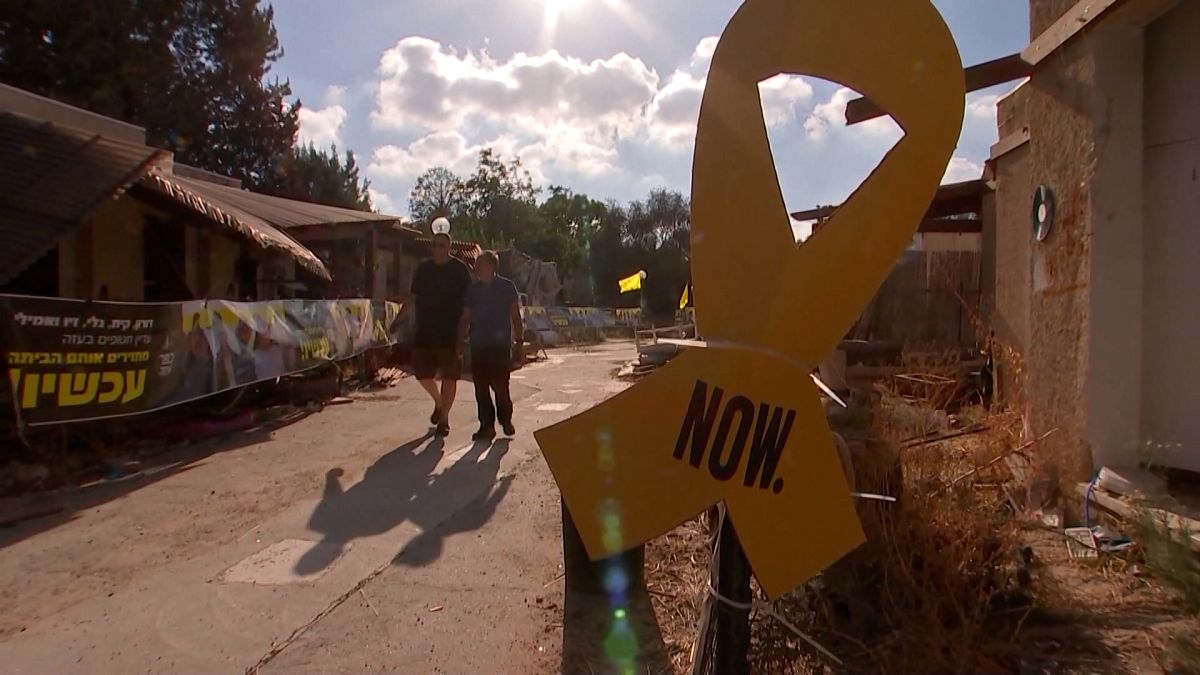Britain hugs oil giant BP while preaching climate action
BP is a global force in fossil fuel drilling — and a major player with COP29 summit host Azerbaijan.
LONDON — The United Kingdom wants to use this week’s COP29 climate summit to sell itself as a global environmental leader.
But it’s got a two-letter problem: BP.
One of the U.K.’s largest companies, BP is a global force in fossil fuel drilling — and thick as thieves with COP29’s host Azerbaijan.
BP is Azerbaijan’s biggest foreign investor. There’s even a joke popular in the region that the Azerbaijani government sees two U.K. power bases in Baku: the British Embassy and BP’s office.
That three-way relationship means the U.K. oil and gas multinational’s influence — and the British government’s ties to it — will loom large over the U.K.’s participation in the key United Nations-organized climate summit in Baku this week.
This relationship — between a new government boasting its green credentials, a U.K. firm steeped in fossil fuels and a petrostate battling allegations of human rights abuses — has already exposed ministers to charges of hypocrisy.
“The U.K. government has turned a blind eye to this toxic relationship for too long,” said Louis Wilson, head of fossil fuel investigations at the NGO Global Witness. “BP’s presence in Azerbaijan is wrecking the U.K.’s COP29 climate goals, and undermining U.K. foreign policy interests too.”
Long road
BP did more than any company to help Azerbaijan build up its oil and gas wealth after the fall of the Soviet Union, creating a lasting bond between London and Baku.
The firm is “fundamental to our relationship with Azerbaijan,” said former U.K. Energy Minister Graham Stuart.
It’s enjoyed privileged status in Azerbaijan since the day it signed the so-called contract of the century in 1994 — the deal opening up post-Soviet Azerbaijan’s fossil fuel resources to international exploitation, in partnership with the state oil company SOCAR.
The firm — which recently scaled back its own climate targets — has no intention of slowing down.

It is still exploring for new oil and gas drilling opportunities in Azerbaijan and is projected to spend $11 billion (£8.5 billion) between now and 2050 on new fields, according to analysis by Global Witness, shared with POLITICO.
That’s despite scientists warning that countries are already way off track to stop the planet warming beyond the Paris Agreement target of 1.5 degrees Celsius above preindustrial levels.
Azerbaijan’s COP29 presidency insists meeting that target should be the “moral duty” of all countries.
Yet BP’s existing oil and gas reserves in Azerbaijan equate to 2 billion barrels, according to Global Witness estimates, based on data from Rystad Energy. “If dug up and burnt, this would produce at least 740 million tons of climate heating pollution,” the NGO said — about two years worth of all the U.K.’s domestic emissions.
It’s an inconvenient truth for new British Prime Minister Keir Starmer and his Energy Secretary Ed Miliband, who will lead U.K. negotiations at COP and want to flaunt the fresh Labour government’s climate cred.
They can point to an ambitious domestic climate agenda to cut gas from the British power system by 2030 and ban new licenses for oil and gas exploration.
But the role BP plays in British diplomacy can’t be understated.
Ben Godwin, head of analysis at strategic intelligence firm PRISM, said the firm sits at the center of an intimate economic relationship between the U.K. and Azerbaijan — the scale of which is rarely appreciated in Westminster.
“It’s not just BP itself,” Godwin said. “BP’s presence enables U.K. companies, including oil field services and professional services companies, to build a presence. BP provides an umbrella under which hundreds of U.K. exporters have a business relationship with Azerbaijan.”
Such a relationship should help U.K. climate lobbying ahead of COP, not weaken it, argued Stuart, the former Conservative energy minister.
“BP’s investments in Azerbaijan mean that the U.K. has far more diplomatic weight in Azerbaijan than would otherwise be the case,” Stuart said. “It provides the senior level engagement, frequency of engagement and access which otherwise we could not hope to have.”

Others on the government’s own side are not so convinced. “Real climate leadership requires the U.K. government to do more to help the world move away from fossil fuel dependency,” said Ken Penton, a former Labour adviser who now works with the Fossil Fuel Non-Proliferation Treaty Initiative and co-chairs the Labour-affiliated green campaign group SERA.
“They need to make clear to U.K.-based oil and gas companies like BP that, as the International Energy Agency and the U.N. secretary-general have said, we cannot be developing any new oil and gas fields if we want to keep below 1.5C of temperature rise set out in the Paris Agreement. To do otherwise risks what scientists describe as catastrophe.”
Wine and speeches
The three-way relationship was on full display just weeks after Labour’s landslide election victory in July, when Miliband attended a COP29-themed reception at the Azerbaijani Embassy in London.
Joining the new energy secretary for the wine and speeches — according to the embassy — was Baku’s COP29 President-designate Mukhtar Babayev and BP’s Executive Vice President for Production and Operations Gordon Birrell.
In opposition, Miliband criticized what he called BP’s “unearned, unexpected windfalls of war” when Russia’s invasion of Ukraine forced up oil and gas prices worldwide.
Now in government, he was rubbing shoulders with one of the drilling company’s top executives at a diplomatic bash organized by the country which has proven so profitable for the firm — all at an event meant to promote the importance of shifting toward a greener global economy.
Asked whether Miliband spoke with Birrell at the event, the Department for Energy Security and Net Zero declined to comment.
Questioned about BP’s oil and gas investments in Azerbaijan during a recent trip to the United States, Miliband said he worked “closely” with BP, as he did with other oil and gas majors. “I think there’s lots of ways in which traditional fossil fuel companies can be part of the solution to the [climate] challenges that we are talking about,” Miliband said. “So my encouragement is: We need to make the energy transition, and I spend a lot of time working with them on their clean energy investment and indeed on their oil and gas investment.”
Some, like Stuart, the Conservative former minister, argue that challenging BP more would jeopardize the U.K.’s “diplomatic credibility” with Azerbaijan.
‘Close and reliable partner’
So far as the Baku government is concerned, meanwhile, BP is beyond reproach.
U.K. diplomats say they have been working with the Azerbaijanis to push for ambitious climate targets at COP29 as well as a fair settlement to the vexed question of climate finance for developing countries.
But Baku rarely misses an opportunity to remind London who really matters in this relationship.
When President Ilham Aliyev sent formal congratulations to Starmer after the general election, by the third paragraph he was hailing Azerbaijan’s “close and reliable partner BP,” for helping the country usher in “the transition to clean energy.”
In reality, BP’s fossil fuel interests in the country still dwarf its renewables plans.
Aliyev’s government meanwhile has a record of detaining political opponents — including the U.K.-based academic Gubad Ibadoghlu, a critic of the country’s oil and gas policies who remains under house arrest in the country. Ibadoghlu’s son, Ibad Bayramov, has called on Starmer to raise his father’s case at the summit.
The family has also appealed directly to BP for help. They have received no assurances BP will use its standing in Azerbaijan to press for Ibadoghlu’s release. Replying to the Crude Accountability campaign group last year, the firm said it hoped “the situation” would be resolved “in accordance with international human rights norms as well as national laws.”
Bayramov, Ibadoghlu’s son, is not giving up hope.
“I believe BP still has an opportunity to take the right step at COP29,” he said. “I hope they will use this opportunity to demand action regarding my father’s case because we must not forget that at its core, climate change is a human rights issue.”
“We hope that the U.K. government will be using all tools at its disposal to encourage Azerbaijan to ensure greater respect for human rights including freedom of expression, association and peaceful assembly,” said Polly Truscott, human rights adviser on foreign affairs at Amnesty International UK.
Asked whether BP would have a presence at the COP summit, the Azerbaijani presidency declined to comment. Asked whether the presidency has had any engagement with the company in the run-up to the summit, a COP29 spokesperson said: “We have had regular contact, at different levels, with all party and non-party stakeholders during our preparations for COP29.” BP did not respond to a request for comment.
Even where the company does branch out from oil and gas drilling in the region and into renewables, it may struggle to offer the new U.K. government a COP29 public relations boost.
The company confirmed in October that it would build a solar plant, partnering with SOCAR, in the Jabrayil region. The Azerbaijanis call this “liberated territory,” fought for in 2020 in the Second Nagorno-Karabakh war with Armenia, language repeated in SOCAR quotes used on BP’s website when it announced the deal.
And the purpose of that solar farm? It will provide electricity for the Sangachal complex south of Baku — one of the largest oil and gas terminals in the world.
Sara Schonhardt contributed reporting from Washington, D.C.
What's Your Reaction?



















































